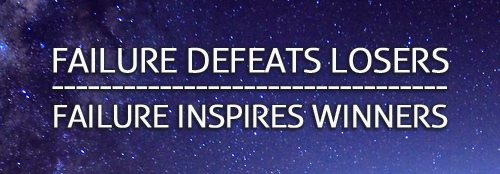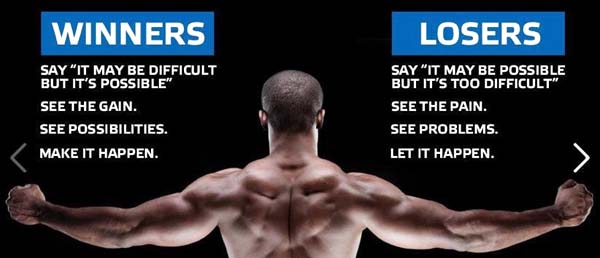Life
5 Worldviews Winners Use to Succeed at the Game of Life
When a computerized chess player evaluates a board, it sees all possible moves.
When a chess grandmaster looks at the same board, he sees only the moves that achieve something.
Humans are much more efficient because of how we selectively devote our focus.
We are not computers. We are emotional, irrational, and frail. But we are also beautiful and brilliant. So when we seek success, cold logic is less effective than plans that not only take into account that which is human within us, but actually embrace it.
Developing the right outlook and understanding of the world can be the structure that makes all the proper behaviors within it effortless.
Here are five success-enhancing worldviews employed by winners in the chess game of life.
1. Offer Value Before Asking for Value
When someone is interacting with you—whether in business or in your personal life—they don’t care about your sob story, how much you need the money, etc. What they care about is themselves and what you are going to do for them. Therefore, the best motivation is to show a person how something benefits them.
If you bring people positive results, wealth, or fulfillment, you will never have a shortage of customers or connections, or a shortage of referrals.
2. Pick a Plan You Will Actually Follow
It’s better to spend your time fighting obstacles in the real world than fighting against yourself.
A basic routine in the gym that you will stick to, for example, is far better than a complex, perfect one that you won’t. Simple.
3. Begin with Your End in Mind
Don’t become a hostage of your own success. If you have visions of traveling the world, don’t “succeed” in a way that requires you to sit behind a computer all day. You are then only a prisoner with luxurious accommodations. Ask, How can I make a business that runs itself? How can I spend my time the way I want to? No matter how capable you are, you can’t get more done than ten people can.
No matter how much money you have, you can’t get back the years you spent hating your job. Structure your game plan, delegate appropriately, and create an exit strategy so you can enjoy what you’ve achieved.

4. Take One Right Action—Just One
Imagine a donkey sitting with a pail of water on one side and a pail of oats on the other. It can’t decide whether to eat or drink and eventually, it dies of both hunger and thirst. In an overwhelming situation, most people panic and give up.
Don’t worry about the perfect action—take one right action. Then another. And another. And another. Oddly enough, you’ll find that you can sometimes accomplish the impossible. And even if you don’t, you’ve gotten as close as you could have. And that’s all you can really ask of yourself.
5. Fail Faster
It’s difficult to get things perfect the first time.
Be willing to fail, learn the requisite lessons, and improve. Of course, you want to control your failures—it’s better to have small blunders than catastrophes. Someone once said, if you waited for all the lights to turn green, you’d never leave your driveway.
When a torpedo is launched, its path is accurate, but not precise. As it heads toward its target, it’s constantly adjusting to achieve a direct hit. Similarly, in life, it’s better to fire the best you can—and then adjust and improve along the way.

Did You Know
How Skilled Migrants Are Building Successful Careers After Moving Countries
Behind every successful skilled migrant career is a mix of resilience, strategy, and navigating systems built for locals.

Moving to a new country for work is exciting, but it can also be unnerving. Skilled migrants leave behind familiar systems, networks, and support to pursue better job opportunities and a better future for their families. (more…)
Life
10 Research-Backed Steps to Create Real Change This New Year
This New Year could finally be the one where you break old patterns and create real, lasting change.

Every New Year, we make plans and set goals, but often repeat old patterns. (more…)
Life
9 Harsh Truths Every Young Man Must Face to Succeed in the Modern World
Before chasing success, every young man needs to face these 9 brutal realities shaping masculinity in the modern world.

Many young men today quietly battle depression, loneliness, and a sense of confusion about who they’re meant to be.
Some blame the lack of deep friendships or romantic relationships. Others feel lost in a digital world that often labels traditional masculinity as “toxic.”
But the truth is this: becoming a man in the modern age takes more than just surviving. It takes resilience, direction, and a willingness to grow even when no one’s watching.
Success doesn’t arrive by accident or luck. It’s built on discipline, sacrifice, and consistency.
Here are 9 harsh truths every young man should know if he wants to thrive, not just survive, in the digital age.
1. Never Use Your Illness as an Excuse
As Dr. Jordan B. Peterson often says, successful people don’t complain; they act.
Your illness, hardship, or struggle shouldn’t define your limits; it should define your motivation. Rest when you must, but always get back up and keep building your dreams. Motivation doesn’t appear magically. It comes after you take action.
Here are five key lessons I’ve learned from Dr. Peterson:
-
Learn to write clearly; clarity of thought makes you dangerous.
-
Read quality literature in your free time.
-
Nurture a strong relationship with your family.
-
Share your ideas publicly; your voice matters.
-
Become a “monster”, powerful, but disciplined enough to control it.
The best leaders and thinkers are grounded. They welcome criticism, adapt quickly, and keep moving forward no matter what.
2. You Can’t Please Everyone And That’s Okay
You don’t need a crowd of people to feel fulfilled. You need a few friends who genuinely accept you for who you are.
If your circle doesn’t bring out your best, it’s okay to walk away. Solitude can be a powerful teacher. It gives you space to understand what you truly want from life. Remember, successful men aren’t people-pleasers; they’re purpose-driven.
3. You Can Control the Process, Not the Outcome
Especially in creative work, writing, business, or content creation, you control effort, not results.
You might publish two articles a day, but you can’t dictate which one will go viral. Focus on mastery, not metrics. Many great writers toiled for years in obscurity before anyone noticed them. Rejection, criticism, and indifference are all part of the path.
The best creators focus on storytelling, not applause.
4. Rejection Is Never Personal
Rejection doesn’t mean you’re unworthy. It simply means your offer, idea, or timing didn’t align.
Every successful person has faced rejection repeatedly. What separates them is persistence and perspective. They see rejection as feedback, not failure. The faster you learn that truth, the faster you’ll grow.
5. Women Value Comfort and Security
Understanding women requires maturity and empathy.
Through books, lectures, and personal growth, I’ve learned that most women desire a man who is grounded, intelligent, confident, emotionally stable, and consistent. Some want humor, others intellect, but nearly all want to feel safe and supported.
Instead of chasing attention, work on self-improvement. Build competence and confidence, and the rest will follow naturally.
6. There’s No Such Thing as Failure, Only Lessons
A powerful lesson from Neuro-Linguistic Programming: failure only exists when you stop trying.
Every mistake brings data. Every setback builds wisdom. The most successful men aren’t fearless. They’ve simply learned to act despite fear.
Be proud of your scars. They’re proof you were brave enough to try.
7. Public Speaking Is an Art Form
Public speaking is one of the most valuable and underrated skills a man can master.
It’s not about perfection; it’s about connection. The best speakers tell stories, inspire confidence, and make people feel seen. They research deeply, speak honestly, and practice relentlessly.
If you can speak well, you can lead, sell, teach, and inspire. Start small, practice at work, in class, or even in front of a mirror, and watch your confidence skyrocket.
8. Teaching Is Leadership in Disguise
Great teachers are not just knowledgeable. They’re brave, compassionate, and disciplined.
Teaching forces you to articulate what you know, and in doing so, you master it at a deeper level. Whether you’re mentoring a peer, leading a team, or sharing insights online, teaching refines your purpose.
Lifelong learners become lifelong leaders.
9. Study Human Nature to Achieve Your Dreams
One of the toughest lessons to accept: most people are self-interested.
That’s not cynicism, it’s human nature. Understanding this helps you navigate relationships, business, and communication more effectively.
Everyone has a darker side, but successful people learn to channel theirs productively into discipline, creativity, and drive.
Psychology isn’t just theory; it’s a toolkit. Learn how people think, act, and decide, and you’ll know how to lead them, influence them, and even understand yourself better.
Final Thoughts
The digital age offers endless opportunities, but only to those who are willing to take responsibility, confront discomfort, and keep improving.
Becoming a man today means embracing the hard truths most avoid.
Because at the end of the day, success isn’t about luck. It’s about who you become when life tests you the most.
Change Your Mindset
The Four Types of Happiness: Which One Are You Living In?
Most people chase success only to find emptiness, this model reveals why true happiness lies somewhere else.

In a world driven by rapid technological growth and constant competition, many people unknowingly trade joy for achievement. (more…)
-

 Did You Know4 weeks ago
Did You Know4 weeks agoThe Success Patterns You Inherited (And Didn’t Notice)
-

 Entrepreneurs3 weeks ago
Entrepreneurs3 weeks agoThe Essential Skills Every Entrepreneur Needs In 2026
-

 Business4 weeks ago
Business4 weeks agoThe Hidden Money Pit in Your Operations (and How to Use It)
-

 Change Your Mindset3 weeks ago
Change Your Mindset3 weeks agoHow to Turn Your Mind Into Your Greatest Asset (Instead of Your Enemy)
-

 Change Your Mindset2 weeks ago
Change Your Mindset2 weeks agoThe Silent Skill That Makes People Respect You Instantly
-

 Life2 weeks ago
Life2 weeks ago10 Research-Backed Steps to Create Real Change This New Year
-

 Tech2 weeks ago
Tech2 weeks agoWhat’s in a Name? How to Get Your Domain Right
-

 Did You Know1 week ago
Did You Know1 week agoHow Skilled Migrants Are Building Successful Careers After Moving Countries























3 Comments